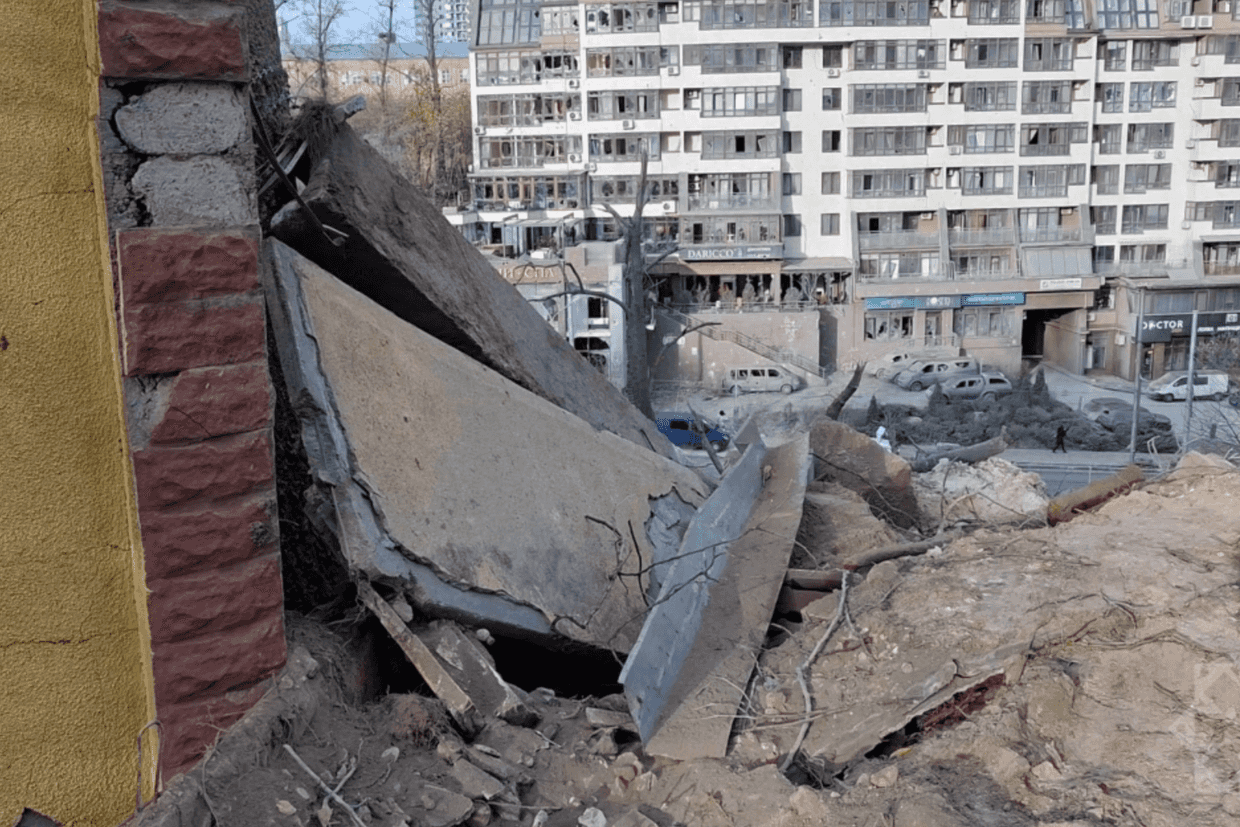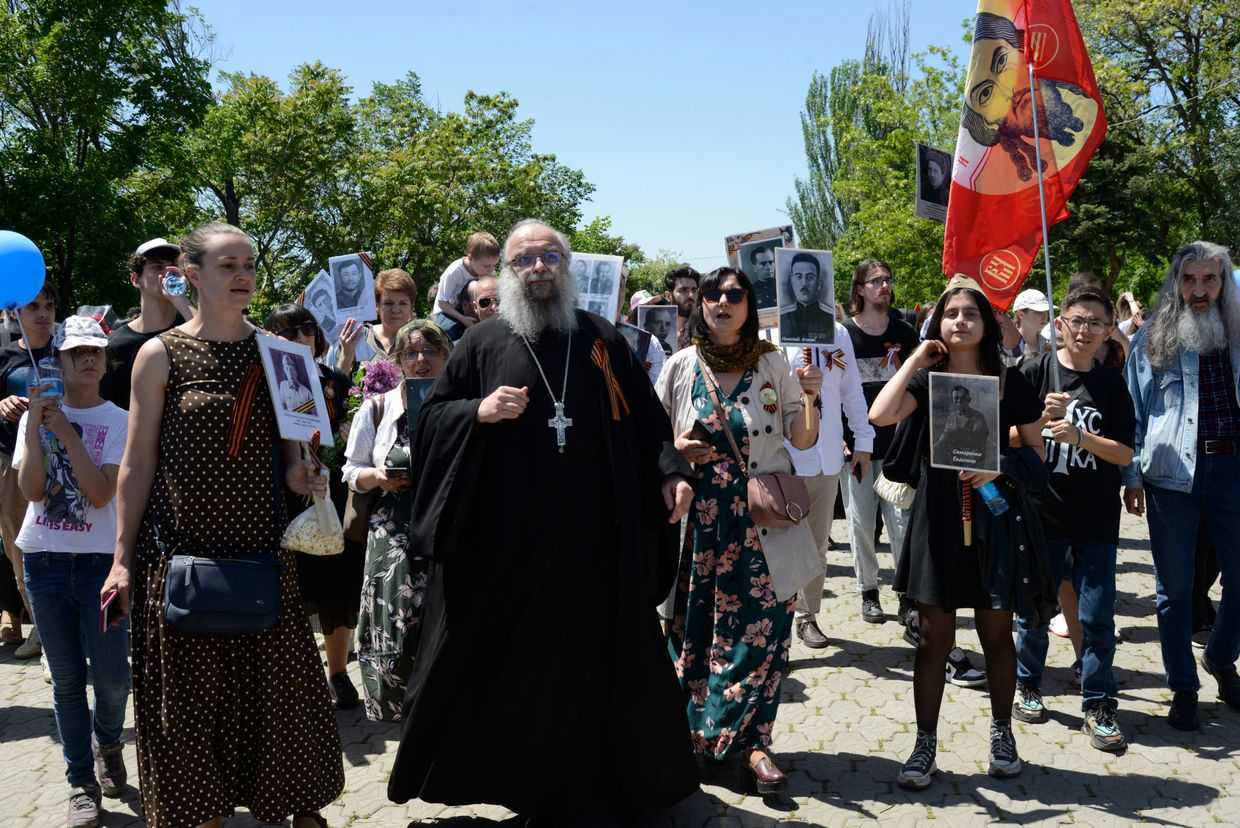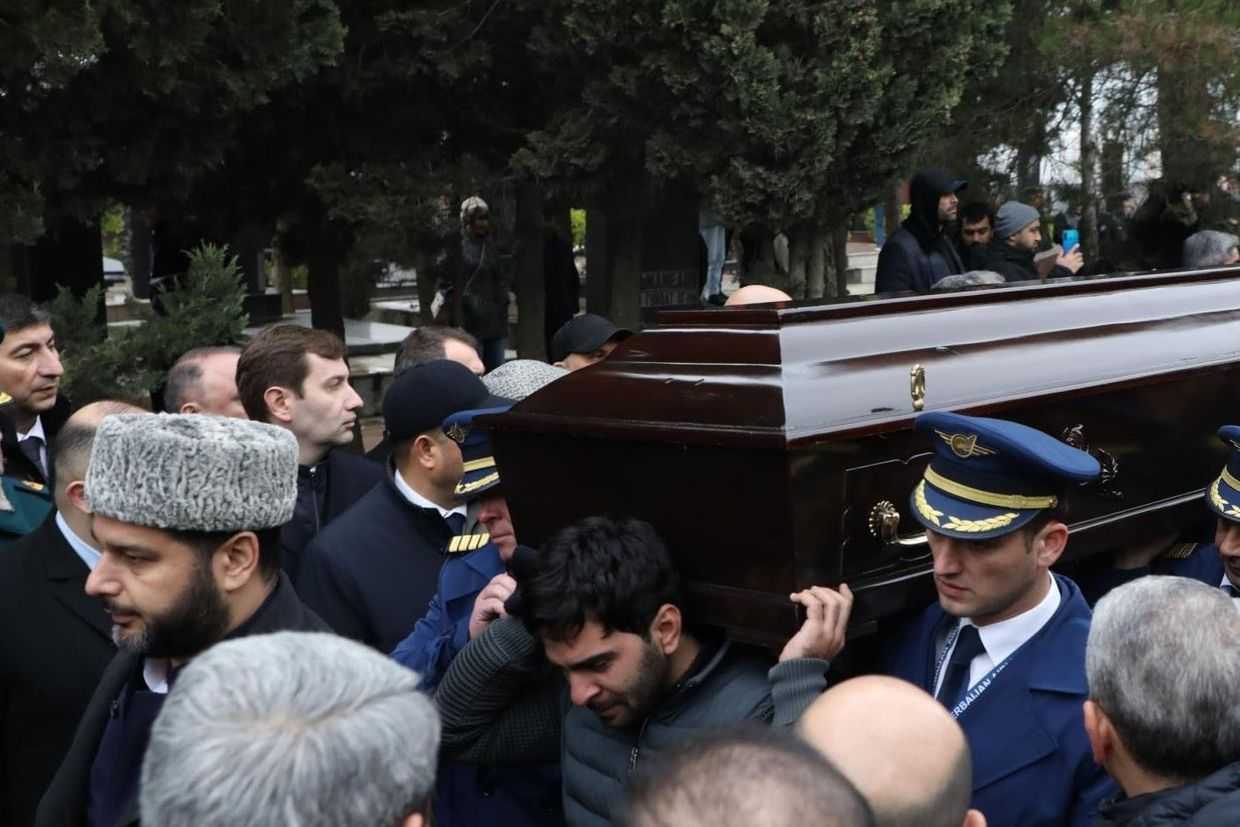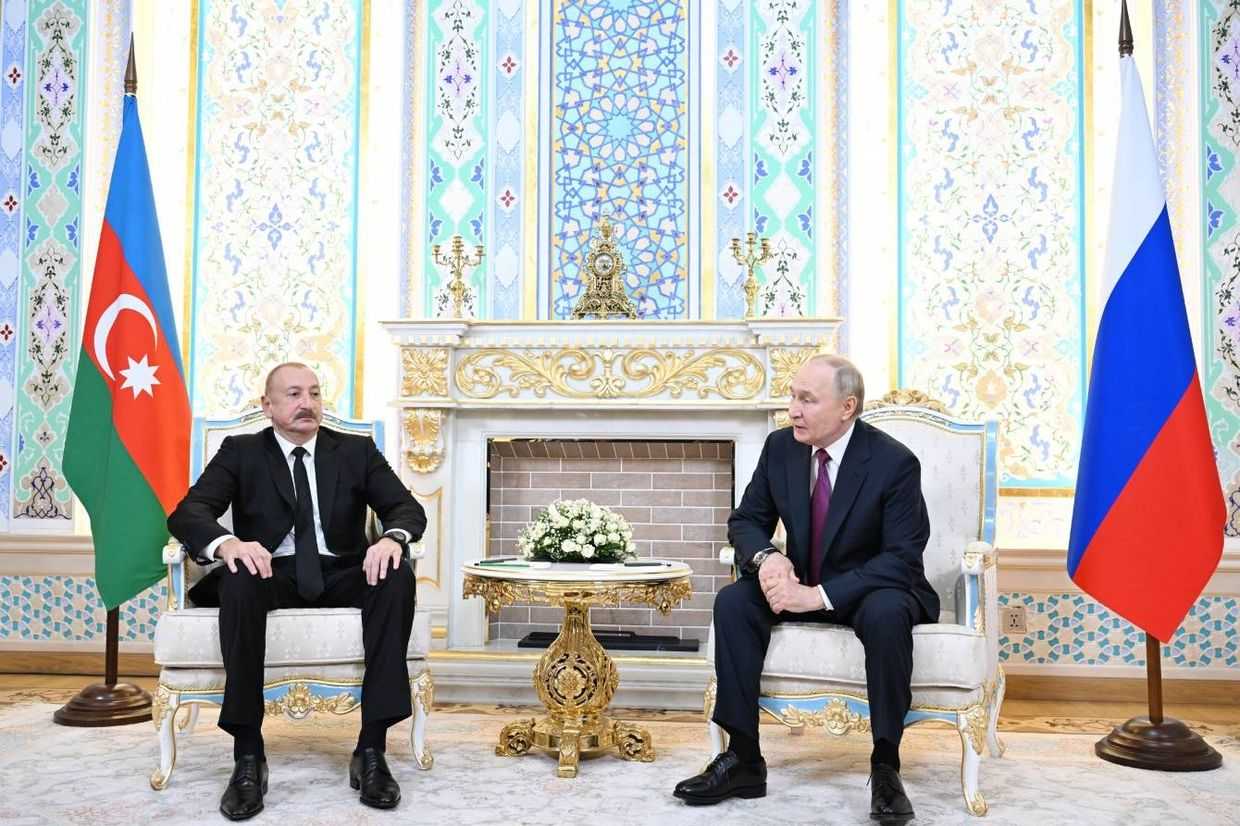Explainer | What was behind the recent spat between Azerbaijan and Russia?
The very public falling out between Baku and Moscow was arguably the most significant break in bilateral relations since they were first established.

Azerbaijani-Russian relations have reached a new low in the last few weeks following raids on Azerbaijani diaspora centres in Russia, culminating with the death of two diaspora leaders in Yekaterinburg. While this violent incident was the catalyst for the now very public feud, the roots stretch far back, and relate to a confusing web of relations between the criminal underworld and the Azerbaijani diaspora in Russia.
Fairweather friends
Azerbaijani–Russian relations possess a deep and intricate history, rooted in centuries of shared geopolitical space. The territory of what is now modern-day Azerbaijan became part of the Russian Empire following the Russo–Persian Wars of 1804–13 and 1826–28, with the resulting Treaties of Gulistan and Turkmenchay ceding Qajar Iranian territories north of the Aras River to Russia. After decades under Russian imperial rule, Azerbaijan achieved brief independence in 1918 before being annexed into the Soviet Union in 1920.
Following the collapse of the Soviet Union in 1991, the relationship between the newly independent Azerbaijan and Russia evolved through distinct phases. Initial attempts by President Ayaz Mutallibov, the first leader of independent Azerbaijan, to foster close ties were followed by a period characterised as ‘anti-Russian’ under his successor, Abulfaz Elchibey. However, upon Heydar Aliyev’s ascent to power in 1993, warmer relations were re-established. This re-engagement was notably influenced by the shared backgrounds in the KGB between Aliyev and Russian President Vladimir Putin, fostering a personal rapport that shaped diplomatic interactions.

From 1993 onwards, Russia and Azerbaijan developed robust economic and cultural ties. Russia emerged as a primary market for Azerbaijan’s fruit and vegetable exports and served as a vital transport corridor for Russian trade with Iran and other Middle Eastern partners. Azerbaijani business interests also secured significant assets within Russia’s construction, real estate, and trade sectors. Furthermore, Russia hosts a substantial Azerbaijani diaspora, with unofficial estimates suggesting as many as 2 million ethnic Azerbaijanis residing there, most being migrant workers.
Despite a robust economic relationship, the Nagorno-Karabakh conflict served as a persistent source of friction and a tool for Russian influence. Russia claimed neutrality in the conflict between Azerbaijan and Armenia, yet it simultaneously provided economic assistance and supplied weapons to both countries, with the latter also hosting a Russian military base. At the same time, Moscow co-sponsored peace talks under the OSCE Minsk Group and brokered the 1994 ceasefire. This dual approach meant that Russia historically leveraged the Nagorno-Karabakh conflict to maintain influence over both Armenia and Azerbaijan. Its 2020 peacekeeping deployment, following Azerbaijan’s significant military gains, solidified this role, providing Russia with a position to observe developments on the ground.

From an outsider’s perspective, the signing of the Declaration on Allied Interaction on 22 February 2022, just days before Russia’s full-scale invasion of Ukraine, put Azerbaijan on the aggressor’s side. This document was intended to elevate bilateral relations to an ‘allied level’, emphasising mutual respect for independence, state sovereignty, territorial integrity, and non-interference in each other’s domestic affairs. It also committed both parties to refrain from actions that could harm their strategic partnership. This declaration represented a high point in formal relations, signalling a supposed deepening of ties. For many, this was interpreted as Russia securing its southern flank.
However, Russia’s full-scale invasion of Ukraine and its related military weakness fundamentally altered the geopolitical landscape, profoundly diminishing Moscow’s capacity and focus on the South Caucasus. This provided Azerbaijan with an unprecedented opportunity to re-evaluate and rebalance its relations with Russia, leading to a more assertive and independent foreign policy that has increasingly challenged Russia’s traditional regional dominance.
Azerbaijan’s lightning military campaign in September 2023 resulted in its reclaiming full control of Nagorno-Karabakh. This decisive offensive led to the dissolution of the Nagorno-Karabakh Republic and the mass exodus of nearly the entire ethnic Armenian population from the region — an outcome that was unthinkable just a few years earlier. Despite its peacekeeping presence in Nagorno-Karabakh since the 2020 ceasefire, Russia did not intervene during Azerbaijan’s September 2023 military campaign. This non-intervention was largely attributed to Russia being busy with its war in Ukraine, which diverted its attention and resources. In April 2024, Russian peacekeepers began to withdraw from Nagorno-Karabakh, leaving the region under full Azerbaijani control. This withdrawal occurred a year before their mandate was due to expire, signalling a significant concession of influence.
Fallout from a plane crash and a deadly police raid
Russia’s retreat from its traditional backyard equalled ‘lack of charisma’ in traditional Azerbaijani eyes. Some people, especially the elderly, used to believe that the origins of conflict in Nagorno-Karabakh were rooted in Russia, instead of Armenia. Those voices became once more audible in post-war Azerbaijan, leading to further waning of Russian influence.
The level of Russian ‘charisma’ in Azerbaijani public eyes reached a historic low after the crash of an Azerbaijan Airlines passenger jet en route from Baku to Grozny on 25 December 2024, resulting in the deaths of 38 people. Azerbaijani authorities quickly attributed the crash to the plane being accidentally hit by Russian air defences and criticised Moscow for attempting to cover up the incident, as well as for allegedly denying landing permission that could have averted the disaster. While Putin apologised to Azerbaijani President Ilham Aliyev for the ‘tragic incident’, he notably stopped short of acknowledging direct responsibility. This incident marked the beginning of the current downward trend in bilateral relations. Many believed that as a result, Aliyev declined to attend Russia’s Victory Day parade in Moscow in May 2025.

Tensions further escalated dramatically in June 2025 following violent raids by Russian special forces in Yekaterinburg that targeted ethnic Azerbaijanis. According to Russia’s version of the incident, the raids were in connection with a 2001 murder case. These raids resulted in the deaths of two Azerbaijani brothers while in police custody, with Azerbaijani post-mortem investigations alleging torture. Several others were injured and dozens more detained.
As a result, Azerbaijan cancelled a planned visit by Russian Deputy Prime Minister Alexei Overchuk, called off a session of the bilateral inter-parliamentary commission in Moscow, and halted all Russian cultural events nationwide. Azerbaijani authorities also raided the Baku office of Sputnik-Azerbaijan, a Russian state media outlet, detaining staff whom Azerbaijani media identified as officers of Russia’s Federal Security Service (FSB), along with other Russian nationals. Concurrently, Azerbaijani state-connected media published harsh criticisms of Russia, accusing it of historical ingratitude, political disrespect, ‘chauvinism and cruelty’, and linking the Yekaterinburg deaths to the mistreatment of labour migrants and the full-scale invasion of Ukraine. Some went as far as to describe the actions of the Russian military in the Ukrainian cities of Bucha and Irpin — where Russian troops massacred hundreds of civilians — as ‘genocidal’.
In an apparent reprisal, Russian authorities similarly cancelled cultural events and filed lawsuits against well-known Azerbaijani individuals. According to Lenta.ru, Heydar, the son of President Ilham Aliyev, is facing approximately ₽1 million ($13,000) in unpaid property taxes on a $35 million mansion in Moscow’s exclusive Barvikha neighbourhood, while billionaire developer Aras Aghalarov is facing enforcement actions for allegedly building without permission.
Enforcement actions against Aghalarov were started by Russian bailiffs on 26 June, the day before the Yekaterinburg raids. Aghalarov is one of 25 defendants who have been compelled to leave their property and follow court orders.
A performance by Russian-Azerbaijani singer Emin Aghalarov, the son of Aras Aghalarov, in Svetlogorsk was rescheduled from 6 July 2025 to the following year. ‘Reasons beyond the theatre’s control’ was the excuse given by the Amber Hall venue for the one-year postponement. Although the event organisers acknowledged the delay, they directed enquiries on the precise reasons to the artists’ agents.
The Yekaterinburg raids: an ethnically motivated attack or mafia crackdown?
Russian authorities maintain the Yekaterinburg operation targeted a criminal organisation led by the Safarov brothers that had operated since the late 1990s, allegedly involved in drug trafficking, illegal alcohol and tobacco sales, gambling, prostitution, and pornography distribution. The authorities further alleged the organisation was connected to murders in 2001, 2010, and 2011, including the killing of an entrepreneur who refused to make protection payments, as well as possible links to mass alcohol poisoning in the city in 2021. Moscow has insisted the detainees were Russian citizens of Azerbaijani origin arrested for serious crimes during a legitimate law enforcement operation.

Putting the Safarov brothers’ alleged criminal ties aside, it is a fact that within the Azerbaijani diaspora in Russia, mafia-connected figures fulfilled enforcement and arbitration roles. Migrant-run markets and businesses often fall under protection rackets controlled by Azerbaijani criminal groups linked to so-called ‘vor-v-zakone’ (the Russian term for thief-in-law) traditions. These groups leverage ethnic and kin ties to recruit, control labour, and enforce territorial order. This phenomenon is still understudied.
Prominent figures include Nadir Salifov (Lotu Guli) and Rovshan Janiyev (Lankaranski), both ethnic Azerbaijani crime bosses who built criminal syndicates controlling markets, trafficking, and rackets in Russia and beyond. Salifov, while in prison, is believed to have directed extortion against Azerbaijani businesses across Russia and maintained control of Moscow’s wholesale markets. Lankaranski, is similarly believed to have commanded ethnic Azerbaijani criminal networks in Moscow’s labour and produce markets, collecting protection fees and overseeing illicit trade until his assassination in 2016. Lankaranski is still revered in Azerbaijani society for his protection of Azerbaijanis in Russia.
Even though not reported in the media as much as the Yekaterinburg killings, Russia also arrested two such Azerbaijani thieves-in-law within the same time-frame: Zaur Nakhchivansky (on 2 July) and Vagif Bakinsky (on 4 July). Nakhchivansky is the son of Bayram Talibov, himself a thief-in-law who was murdered alongside Hikmet Mukhtarov in 2006. Nakhchivansky was later ‘adopted’ by Lankaransky, who subsequently raised him to thief-in-law status in 2013.
According to Prime Crime — a Russian-language portal on the criminal underworld — Nakhchivansky is half-Russian and baptised as an Orthodox Christian. Vagif Bakinsky (Suleymanov) is a Georgian Azerbaijani, who is known as a rival of Lankaransky. He has been arrested numerous times for narcotics. When asked by police officers after being detained in July 2025 about his thief-in-law status, Bakinsky refused to answer. Nakhchivansky agreed to speak off-camera. Prime Crime alleges that while a powerful criminal wing of the Azerbaijani diaspora still largely revolves around the thieves-in-law, of the two detained, Bakinsky in particular could become a serious bargaining chip in Moscow and Baku’s diplomatic games. For now, as a stateless individual, he has been remanded into custody for three months at the Yegoryevsk holding facility.
The geopolitical dimension
Karl Lebt, an expert in international law and a graduate of the Albert Ludwig University of Freiburg, has argued that what is happening now between Azerbaijan and Russia should be viewed as an episode of more fundamental processes in Russia related to a new redistribution of property. According to Lebt, the Russian economy cannot sustain the war in Ukraine, so the Kremlin is patching the hole through ‘nationalisations’, including Moscow’s Domodedovo airport, grain traders, warehouse holdings, and other businesses. In this context, Lebt argues that the Azerbaijani community in Russia, one of the country’s wealthiest diasporas, cannot help but be selected as an appealing target.
However, Lebt has not dismissed the geopolitical layer, arguing that a new logistical and political architecture of the South Caucasus is rapidly forming and Moscow has no place in this setting. If Armenia gets involved in the Middle Corridor (Trans-Caspian Transport Corridor), Russia will effectively lose its natural bridge status between Europe and China.
In turn, political scientist Shahin Jafarli has argued that Baku wanted bilateral relations with Moscow to be based on the principle of sovereign equality. However, it became evident once again that Russia views alliance and partnership with former colonies not on the basis of equal rights, but as suzerain-vassal relations. This type of relationship did not satisfy Azerbaijan’s leadership, and after a series of events known and unknown to us, they once again realised that serious threats were emanating from Moscow.
‘These are the underlying causes of the problems’, Jafarli wrote on Facebook on 30 June.
Despite the heated diplomatic exchanges, the influence of warmongers, bloggers’ calls for harsher responses, and even military escalation, neither Putin nor Aliyev have commented on the elephant in the room. Even though Ukrainian President Volodymyr Zelenskyi called to express his support to Aliyev, there is no reason to assume a possibility for new, full-scale escalation or a new front against Russia in the South Caucasus.

Russian Emergency Minister Alexander Kurenkov arrived in Baku on 7 July to participate in a meeting of the Executive Council and General Assembly of the International Civil Defence Organisation (ICDO). Nonetheless, Azerbaijani pro-government Telegram channels speculated that Kurenkov was also on an unofficial mission of mending the strained relations, perhaps even relaying a message from Putin.
The Azerbaijani side does not appear to be eager to continue its sabre-rattling either, as evidenced by the government apparently opting not to confirm the rumoured phasing-out of Russian-speaking schools and banning a request for an anti-Russian protest to be held in front of the embassy in Baku. While the media might be silent, however, the discussions behind closed doors still continue.
So far, the news is not promising. The head of the Azerbaijani diaspora of the Moscow region, Elshan Ibrahimov, was deported from Russia on 9 July. Ibrahimov was deprived of citizenship on 18 June for ‘committing actions that pose a threat to the national security of the Russian Federation’. He has headed ‘the national-cultural autonomy of Azerbaijanis of the Moscow region’ since 2018 and was a close ally of Andrei Vorobyov, the governor of Moscow Oblast. Perhaps unrelated to the topic, but interesting enough — Vorobyov isn’t alien to the South Caucasus either; he was one of the few known soldiers of the Russian ODON (Separate Operational Purpose Division) who was deployed to Sumgait, Baku, and later Yerevan, to quell the nationalist riots and pogroms in the crumbling Soviet Union.
This expulsion could bring another harsh reaction from Baku. If one is to believe pro-government media (remember, they never post anything without knowledge of the Presidential Administration), the next target might be Russian-language schools of Azerbaijan. This is, however, a topic for another article. For now, we can safely rule out any military escalation.
At the time of writing this article, the Azerbaijan State Security Service had arrested two individuals — Ramil Aliyev (born in 1991) and Ismayil Hasanov (born in 1974), accusing them of enlisting in the Wagner armed group (serving in foreign mercenary units is considered a crime in Azerbaijan). It is hard to say where the escalation will stop.










